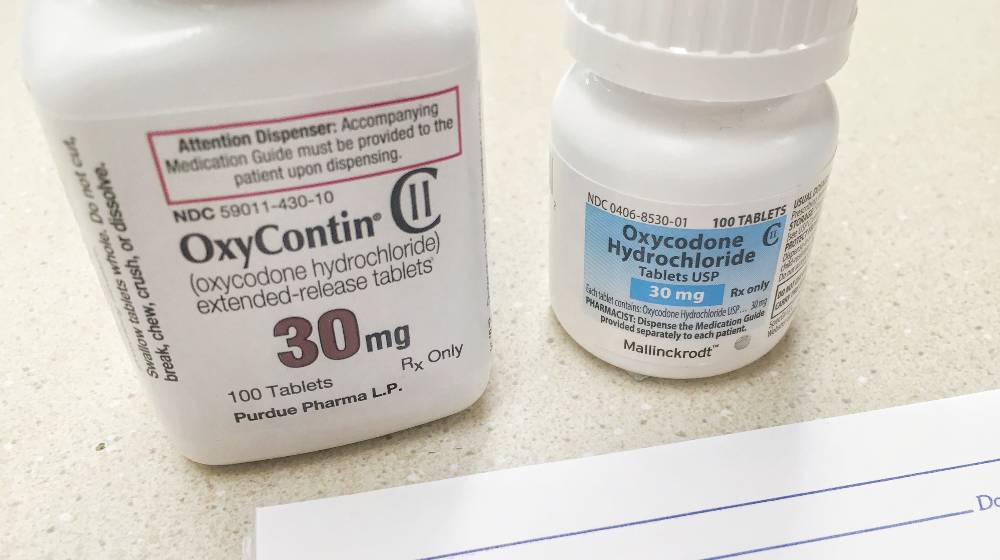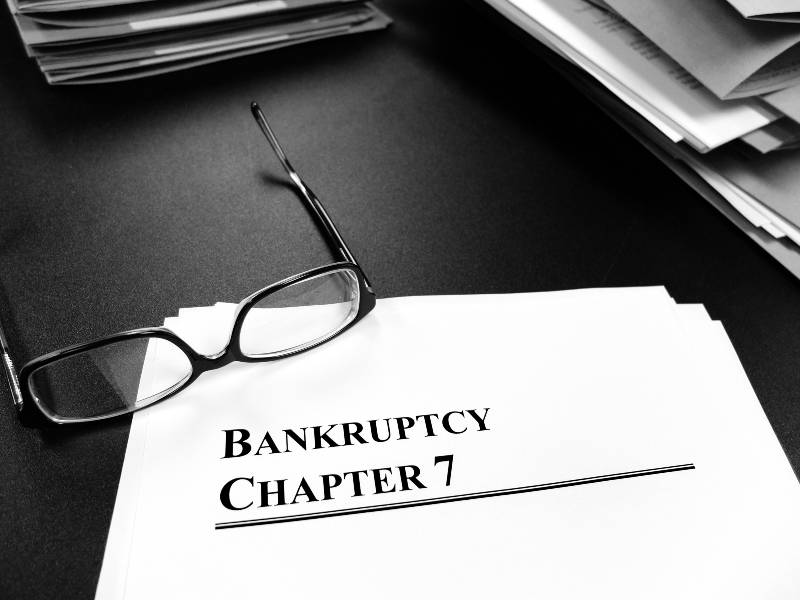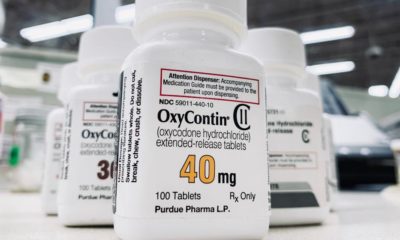Business
Judge Junks Oxycontin Settlement, Orders Sackler Family to Pay Up

A federal judge threw out the bankruptcy plan that shields the Sackler family from liability stemming from the OxyContin lawsuits. She ruled that members of the family that profited from OxyContin should also pay up.
RELATED: Courts Approve OxyContin Maker’s Bankruptcy Plan
Judge Throws Out Bankruptcy Plan

A federal judge withheld the approval for the bankruptcy plan of Purdue Pharma, She said that members of the Sackler family who owned Purdue Pharma cannot claim immunity from legal claims over the charges of opioid abuse.
Want to see the full article?
Click here to read the full article on breakingnewsalerts.com
In a 142-page ruling, US District Judge Colleen McMahon in New York gave her judgment on the matter. She declared the provision granting immunity to the Sackler family inconsistent with the US Bankruptcy Code.
In doing so, she disagreed with the court that approved the $4.5 billion settlement.
Bankruptcy Plan Shields the Sackler Family
Earlier, US Bankruptcy Court Judge Robert Drain approved a plan that shields the Sackler family. Several thousand plaintiffs representing states, counties, and cities sued Purdue Pharma over the epidemic caused by OxyContin.
This caused millions to become addicted to painkillers and killed around half a million Americans in the last 20 years.
In the resolution, the Drain said that the bankruptcy plan will resolve complex and protracted litigation. It also grants immediate monetary relief to the creditors.
However, nine US states and a Department of Justice branch contested the decision. Critics accused the plan of protecting the Sackler family.
Notably, Sackler family members withdrew billions from the company. This allows them to keep the money instead as the plan does not involve seizing family assets. As a result, they won’t have to declare bankruptcy.
Litigation From OxyContin’s Widespread Abuse
The OxyContin case led to many lawsuits against drug companies. Victims sought retribution from companies such as Purdue to address a growing painkiller epidemic.
Many blamed OxyContin for making people addicted to prescription painkillers since its launch in 1996. Purdue filed for bankruptcy protection in 2019.
Last May, it filed a plan to settle claims as the company declared a value of $10 billion.
However, the approved plan came up with warts. Members of the Sackler family will give up their ownership of Perdue. The Sackler family also relinquished its practice of attaching its name to a number of charitable gifts.
However, many objected to the bankruptcy plan. The Sackler family took around $10 billion from the company coffers for over a ten-year period.
According to law UNC professor Melissa Jacoby, this is somehow unusual. “Many people whose lives were devastated by opioids do not believe the Sacklers warrant this protection, and certainly not when the parties are far from bankrupt,” she said.
Purdue Pharmaceuticals To Appeal The Ruling
As expected, Purdue said it would appeal the latest decision. Steve Miller, chairman of Purdue's board of directors, criticized the ruling.
He said that it will “delay and perhaps end the ability of creditors, communities, and individuals to receive billions in value to abate the opioid crisis.”
In contrast, US Attorney General Merrick Garland praised the ruling. He said that “the bankruptcy court did not have the authority” to withhold victims from suing the Sackler family.
Watch the CBS Evening News video reporting that Purdue Pharma's opioid settlement sparks backlash:
What do you think of the lawsuits hounding OxyContin maker Purdue Pharma? Do you agree that the Sackler family needs to help in paying out the victims?
Let us know what you think. Share your thoughts below.
You Might Also Like:
- Nike Donated $60k to Democrat Ron Wyden, Who Then Blocked Uyghur Bill
- Apple Delays Return to the Office, Gives Workers $1,000 Each
- Google Will Fire All Its Unvaccinated Employees By Next Year
Keep up to date with the latest finance news by following us on Facebook and Instagram.





